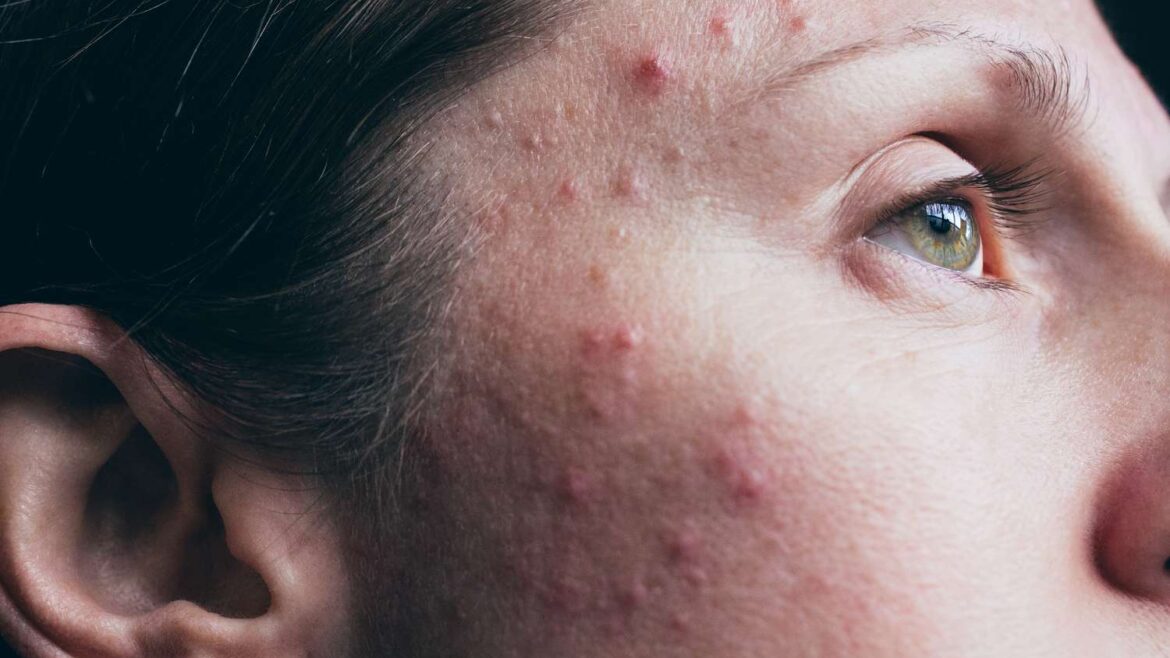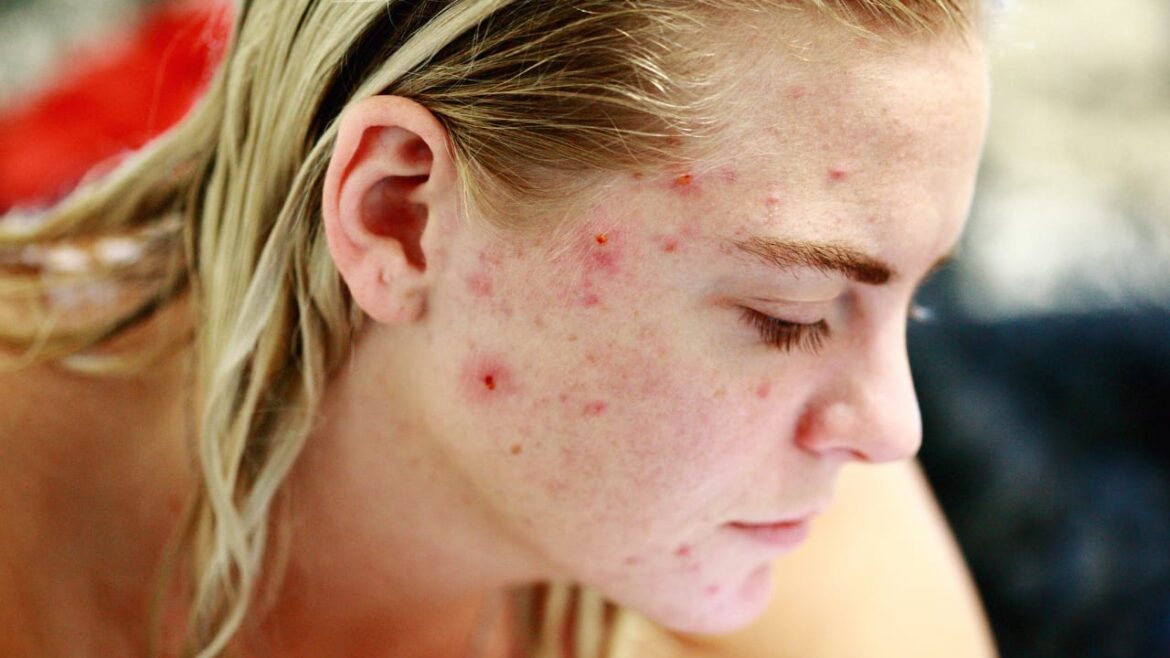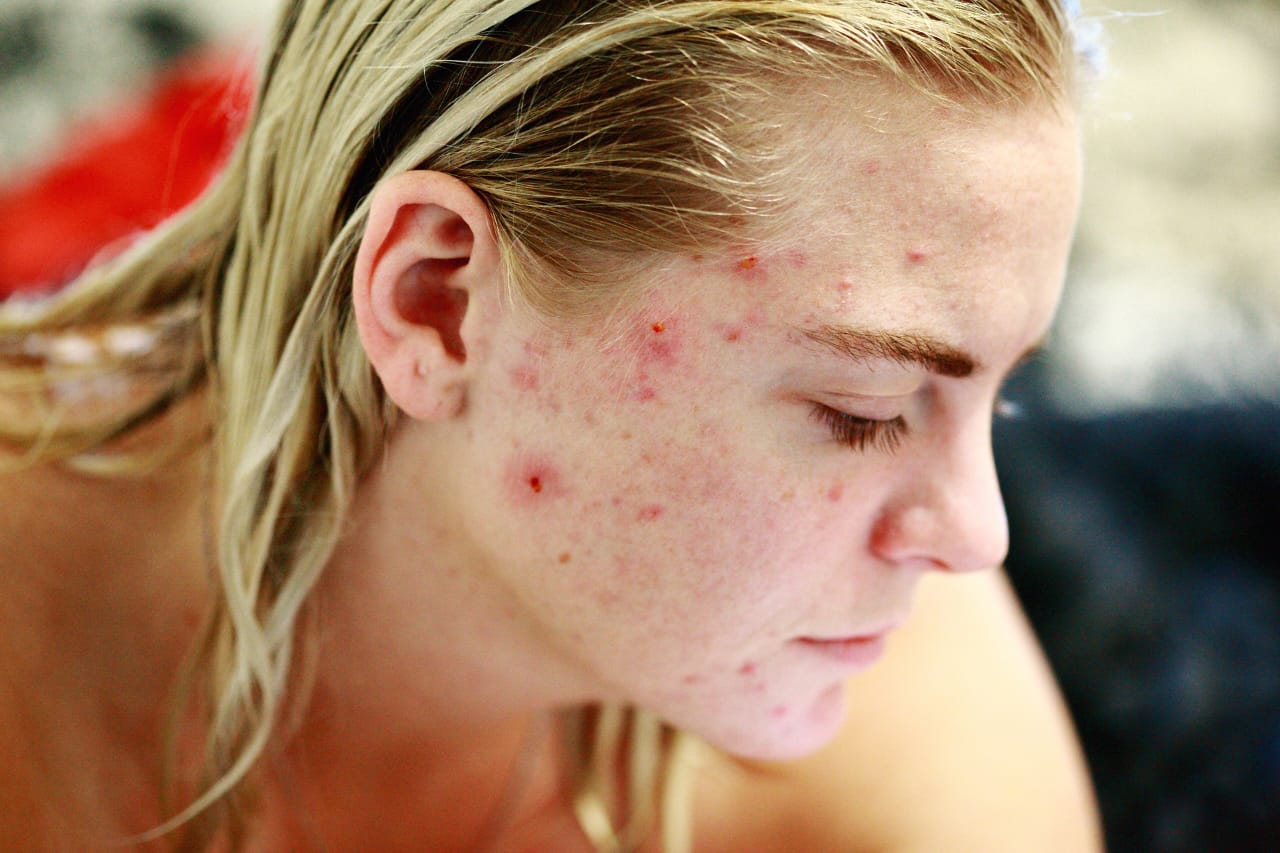The Magnesium-Acne Connection: Separating Fact from Fiction
https://icdrc.org/wp-content/uploads/2024/02/Health-GettyImages-1390356588-f5c3a87b335a43238d4ef3eff16aa0fe-1024x683.jpg 1024 683 admin admin https://secure.gravatar.com/avatar/693ccb227eb6527287caaa4e9eb13c6e?s=96&d=mm&r=gI. Introduction
Does magnesium cause acne? is a vital mineral that plays a crucial role in various physiological functions within the human body. It is involved in over 300 enzymatic reactions, contributing to the regulation of biochemical processes such as energy production, protein synthesis, and muscle function. Additionally, magnesium is essential for maintaining bone health, cardiovascular function, and nerve transmission.
A. Explanation of Magnesium
Magnesium is a naturally occurring element found abundantly in the Earth’s crust and in various foods. It is the fourth most abundant mineral in the human body and is predominantly stored in bones, muscles, and soft tissues. Dietary sources of magnesium include green leafy vegetables, nuts, seeds, whole grains, legumes, and seafood. Moreover, magnesium supplements are also available for individuals who may have difficulty meeting their daily requirements through diet alone.
B. Overview of Acne
Acne is a common skin condition characterized by the formation of pimples, blackheads, whiteheads, cysts, and nodules on the face, neck, chest, back, and shoulders. It occurs when hair follicles become clogged with oil and dead skin cells, leading to the proliferation of bacteria and inflammation. Acne can range from mild to severe and may have significant physical and psychological impacts, particularly among adolescents and young adults.
C. Connection Between Magnesium and Acne
The relationship between magnesium cause acne has garnered attention in recent years, with some studies suggesting a potential link between magnesium levels and the development or exacerbation of acne symptoms. While the exact mechanisms underlying this association remain unclear, researchers have proposed several hypotheses. One theory suggests that magnesium may influence acne through its effects on hormone regulation, inflammation, sebum production, and oxidative stress. However, conflicting findings and limited conclusive evidence necessitate further investigation to elucidate the precise role of magnesium in acne pathogenesis.
II. Understanding Magnesium
A. Sources of Magnesium Intake
Magnesium is an essential mineral that the body requires for numerous physiological functions. While magnesium can be obtained through various dietary sources, it is also available in supplement form for those who may have difficulty meeting their daily requirements through diet alone. Some of the richest dietary sources of magnesium include green leafy vegetables such as spinach and kale, nuts and seeds like almonds and pumpkin seeds, whole grains such as brown rice and quinoa, legumes like beans and lentils, and certain types of fish like salmon and mackerel. Additionally, magnesium can be found in smaller amounts in other foods, including dairy products, fruits, and vegetables.
B. Role of Magnesium in the Body
Magnesium plays a crucial role in numerous biochemical processes within the body, contributing to overall health and well-being. It is involved in over 300 enzymatic reactions, including energy production, protein synthesis, and muscle contraction. Magnesium also plays a key role in maintaining bone health, cardiovascular function, and nerve transmission. Furthermore, magnesium is necessary for the regulation of blood sugar levels, blood pressure, and the synthesis of DNA and RNA. Given its diverse functions, magnesium is essential for supporting optimal health and ensuring the proper functioning of various bodily systems.
C. Recommended Daily Intake of Magnesium
The recommended daily intake of magnesium varies depending on factors such as age, sex, and individual health status. According to the National Institutes of Health (NIH), the recommended dietary allowances (RDAs) for magnesium are as follows:
- Adult males: 400-420 milligrams per day
- Adult females: 310-320 milligrams per day
- Pregnant females: 350-360 milligrams per day
- Lactating females: 310-320 milligrams per day
It’s important to note that individual magnesium requirements may vary based on factors such as physical activity level, dietary habits, and underlying health conditions. Additionally, certain populations, such as older adults and individuals with gastrointestinal disorders, may have increased magnesium needs or absorption issues.
III. Understanding Acne
A. Definition of Acne
Acne is a common skin condition characterized by the presence of various lesions, including pimples, blackheads, whiteheads, cysts, and nodules. These lesions typically develop on areas of the skin with a high concentration of oil glands, such as the face, neck, chest, back, and shoulders. Acne can manifest in different forms and severities, ranging from mild occasional breakouts to severe and persistent outbreaks. It often begins during adolescence due to hormonal changes but can affect individuals of all ages.
B. Causes of Acne
The development of acne is multifactorial, involving a combination of genetic, hormonal, environmental, and lifestyle factors. One primary cause of acne is the overproduction of sebum, an oily substance produced by the skin’s sebaceous glands. Excessive sebum production can lead to clogged pores, providing an ideal environment for the proliferation of acne-causing bacteria, primarily Propionibacterium acnes. Other contributing factors include inflammation, hormonal fluctuations, certain medications, dietary factors, stress, and inadequate skincare practices.
C. Types of Acne
Acne presents in various forms, each characterized by distinct lesions and underlying causes:
- Comedonal Acne: This type of acne is characterized by the presence of comedones, which are non-inflammatory lesions consisting of clogged pores. Comedonal acne can further be categorized as open comedones (blackheads) or closed comedones (whiteheads).
- Inflammatory Acne: Inflammatory acne involves red, swollen, and tender lesions caused by the inflammatory response to bacterial colonization within the hair follicles. These lesions may include papules, pustules, and nodules.
- Cystic Acne: Cystic acne is a severe form of acne characterized by deep, painful, pus-filled lesions known as cysts. These cysts can cause significant scarring and are often resistant to conventional treatments.
IV. The Potential Link between Magnesium Cause Acne
A. Research Studies Suggesting a Connection
Several studies have explored the potential association between magnesium levels and acne prevalence or severity. Some observational studies have reported higher magnesium levels in individuals with acne compared to those without the condition. Additionally, certain clinical trials have shown improvements in acne symptoms following magnesium supplementation, suggesting a potential therapeutic benefit.
B. Mechanisms by Which Magnesium Might Influence Acne
The mechanisms underlying the potential link between magnesium and acne are not fully understood. However, several hypotheses have been proposed. Magnesium may influence acne through its effects on hormone regulation, specifically androgen hormones, which play a role in sebum production. Magnesium also possesses anti-inflammatory properties and may help modulate the immune response, potentially reducing acne-related inflammation. Additionally, magnesium may impact sebum production and skin barrier function, which are implicated in acne pathogenesis.
C. Factors Influencing the Relationship Between Magnesium Cause Acne
Several factors may influence the relationship between magnesium and acne, including individual variations in magnesium metabolism, dietary intake, lifestyle factors, and underlying health conditions. Additionally, the complexity of acne etiology. Which involves multiple contributing factors, makes it challenging to establish a direct causal relationship between magnesium levels and acne development or progression. Further research is needed to elucidate the precise mechanisms and determine the clinical significance of the potential link between magnesium and acne.
V. Contradictory Evidence and Debates
A. Studies Challenging the Association
While some studies suggest a potential link between magnesium levels and acne, others have failed to demonstrate a significant association. Some observational studies have reported conflicting findings, with no clear consensus on the relationship between magnesium status and acne prevalence or severity. Additionally, certain clinical trials investigating the effects of magnesium supplementation on acne have yielded inconclusive results, with some showing no significant improvement in acne symptoms.
B. Confounding Variables
One of the challenges in studying the association between magnesium and acne is the presence of confounding variables that can influence the results. Factors such as dietary habits, lifestyle factors, hormonal fluctuations, skincare practices, and genetic predisposition may confound the relationship between magnesium levels and acne. Moreover, individual variations in magnesium metabolism and absorption further complicate the interpretation of study findings. Failure to adequately control for these confounding variables can lead to biased results and inaccurate conclusions.
C. Limitations of Existing Research
Existing research on the potential link between magnesium and acne is limited by several factors. Many studies are observational in nature, making it difficult to establish causality. Additionally, the methodologies used in some studies may be subject to bias, measurement error, or inadequate control of confounding variables. Furthermore, the heterogeneity of study populations, variations in study designs, and inconsistencies in outcome measures contribute to the limitations of existing research. Moreover, the majority of studies examining the effects of magnesium on acne have been conducted on small sample sizes, warranting larger, well-designed clinical trials to provide more definitive evidence.
VI. Practical Implications and Recommendations
A. Dietary Adjustments to Manage Magnesium Intake
Maintaining a balanced diet rich in magnesium-containing foods, such as leafy greens, nuts, seeds, whole grains, and legumes, may help support overall health and potentially contribute to acne management. However, it is essential to emphasize dietary diversity and moderation rather than focusing solely on increasing magnesium intake, as excessive consumption of certain foods may have adverse effects on acne or overall health.
B. Skincare Practices for Acne Management
In addition to dietary adjustments, adopting proper skincare practices can help manage acne symptoms. This includes regular cleansing with a gentle cleanser, avoiding harsh or abrasive skincare products, using non-comedogenic moisturizers and sunscreen, and incorporating acne-fighting ingredients such as salicylic acid or benzoyl peroxide into skincare routines. It is essential to consult with a dermatologist to develop a personalized skincare regimen tailored to individual skin types and acne severity.
C. Consultation with Healthcare Professionals
Individuals experiencing persistent or severe acne symptoms should seek professional medical advice and treatment. A healthcare provider, preferably a dermatologist, can evaluate the underlying causes of acne, recommend appropriate treatment options, and provide guidance on managing acne-related concerns. Additionally, healthcare professionals can help address any potential dietary deficiencies or imbalances that may contribute to acne symptoms and provide evidence-based recommendations for acne management.
You can also read can pre workout give you acne.
VII. Conclusion
A. Summary of Key Points
In summary, the relationship between magnesium and acne remains an area of ongoing research and debate. While some studies suggest a potential association between magnesium levels and acne prevalence or severity, conflicting evidence and limitations in existing research highlight the complexity of this relationship. Acne is a multifactorial condition influenced by various genetic, hormonal, environmental, and lifestyle factors, and its management requires a comprehensive approach.
B. Final Thoughts on the Potential Relationship Between Magnesium and Acne
The potential link between magnesium and acne warrants further investigation to elucidate the underlying mechanisms and determine the clinical significance of this association. While some studies suggest that magnesium may influence acne through its effects on hormone regulation, inflammation, and sebum production, conflicting findings and methodological limitations underscore the need for larger, well-designed studies to provide more definitive evidence.
It is essential to interpret the existing research with caution and recognize the limitations and inconsistencies in study findings. While dietary adjustments and skincare practices may play a role in acne management, they should be viewed as complementary rather than definitive treatments for acne. Individuals experiencing persistent or severe acne symptoms should seek professional medical advice and treatment from healthcare providers, who can offer personalized recommendations and interventions tailored to their specific needs.
C. Areas for Future Research
Future research on the potential relationship between magnesium cause acne should focus on addressing the limitations of existing studies and exploring the following areas:
- Prospective cohort studies and randomized controlled trials to establish causality and determine the effects of magnesium supplementation on acne outcomes.
- Investigation of the underlying mechanisms by which magnesium may influence acne development and progression, including its effects on hormone regulation, inflammation, sebum production, and skin barrier function.
- Exploration of potential interactions between magnesium cause other factors implicated in acne pathogenesis, such as dietary components, hormonal fluctuations, and genetic predisposition.
- Assessment of individual variations in magnesium metabolism and absorption and their impact on acne susceptibility and treatment response.
- Longitudinal studies to examine the relationship between magnesium levels and acne over time and identify potential predictive biomarkers for acne risk or treatment response.
FAQs
Does magnesium increase acne?
The relationship between magnesium cause acne is complex and not fully understood. While some studies suggest a potential association between magnesium levels and acne prevalence or severity, conflicting evidence exists. Further research is needed to determine conclusively whether magnesium directly increases acne.
Can magnesium cause skin problems?
Magnesium is generally considered safe for topical use in skincare products. However, individual skin sensitivities and reactions may vary. Some people may experience skin irritation or sensitivity to certain forms of magnesium. It’s essential to patch test new skincare products containing magnesium before applying them to larger areas of the skin.
Which supplements cause acne?
Certain supplements or ingredients found in supplements may potentially exacerbate acne in some individuals. Examples include supplements containing high doses of B vitamins, iodine, or biotin, which have been associated with acne breakouts in some people. It’s essential to consult with a healthcare provider before starting any new supplement regimen, especially if you have concerns about acne or skin health.
Is magnesium safe for the face?
Magnesium is generally considered safe for topical use in skincare products. It has been touted for its potential benefits in skincare, including promoting skin barrier function, regulating sebum production, and reducing inflammation. However, as with any skincare ingredient, individual skin sensitivities and reactions may vary. Patch testing new products containing magnesium is recommended before applying them to larger areas of the face.
Can magnesium clear acne?
While some anecdotal evidence and preliminary research suggest that magnesium may have potential benefits for acne management, such as its anti-inflammatory properties and effects on hormone regulation, more robust clinical studies are needed to confirm these effects definitively. It is advisable to consult with a dermatologist or healthcare provider for personalized recommendations and treatment options if you are struggling with acne.


